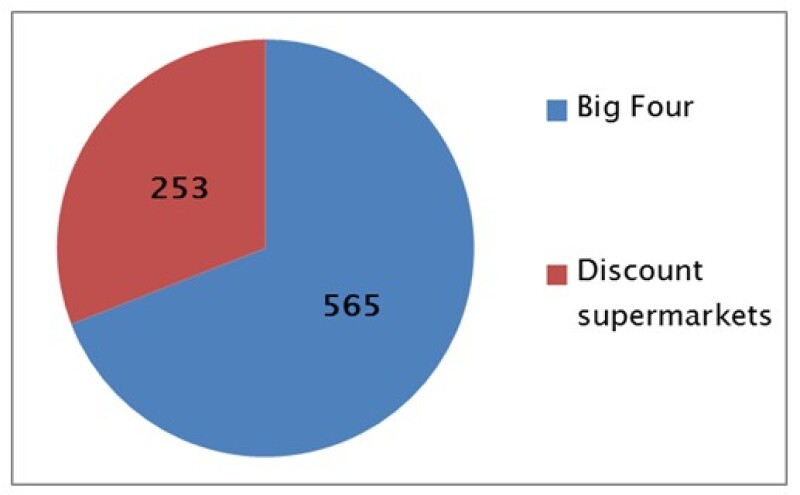
Many brand owners have become increasingly concerned about the way that some discount chains, including Aldi and Lidl, use so-called lookalike packaging to sell their own versions of market-leading products (Aldi famously used the tagline “Like brands. Only cheaper” in one of its advertising campaigns).
But figures published by law firm RPC show that discount supermarkets filing far more trade marks for new products than their market share would suggest.
RPC says that Aldi and Lidl have registered 253 trade marks in the UK in the past five years – almost half as many as the 565 trade marks registered by their big four rivals (Tesco, Asda, Sainsbury’s and Morrisons), despite having a combined market share of just 8% compared to 73% for the big four.
The discount supermarkets also outperformed in registering Community trade marks, with Aldi and Lidl registering 112 trade marks in 2013, compared to just 40 trade marks registered by their big four rivals.
The trend reflects the rapidly changing grocery market in the UK, which is seeing the country’s large supermarket chains battling for market share with so-called hard discounters.
RPC’s Jeremy Drew, who heads the firm’s retail team, said that the data suggests that the discount supermarkets’ new product brand pipeline is running at a faster rate than that of their bigger rivals.
“Within discount retailers in particular the growth of own brand products, which often appear as if they are independent brands, can protect or increase margins and reflect innovation to meet consumer demand.”
“In retail, sometimes being able to develop a new product line quickly can be just as important as having a large number of different product lines on the shelf already.”
You can read more about litigation between brand owners and supermarkets in Managing IP, including an IP Clinic offering advice on dealing with lookalikes sold by discount stores.










